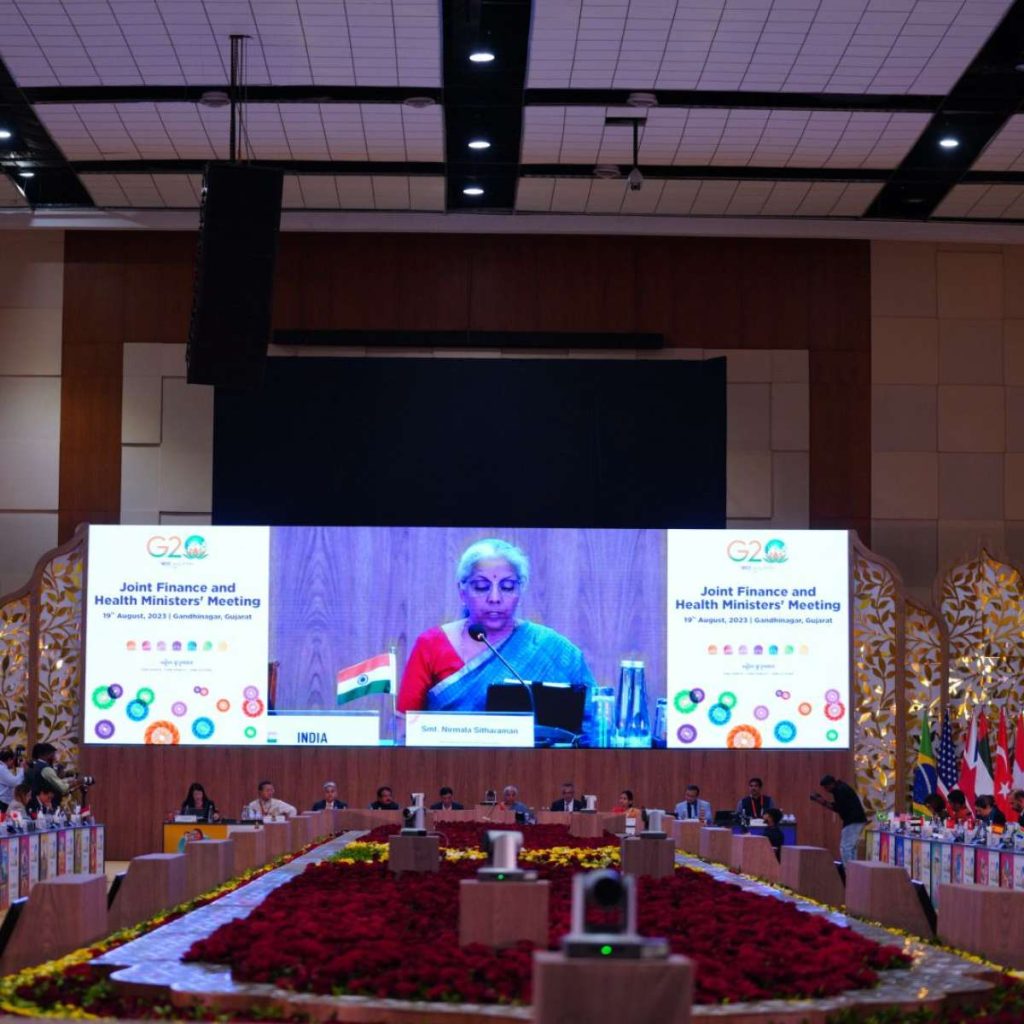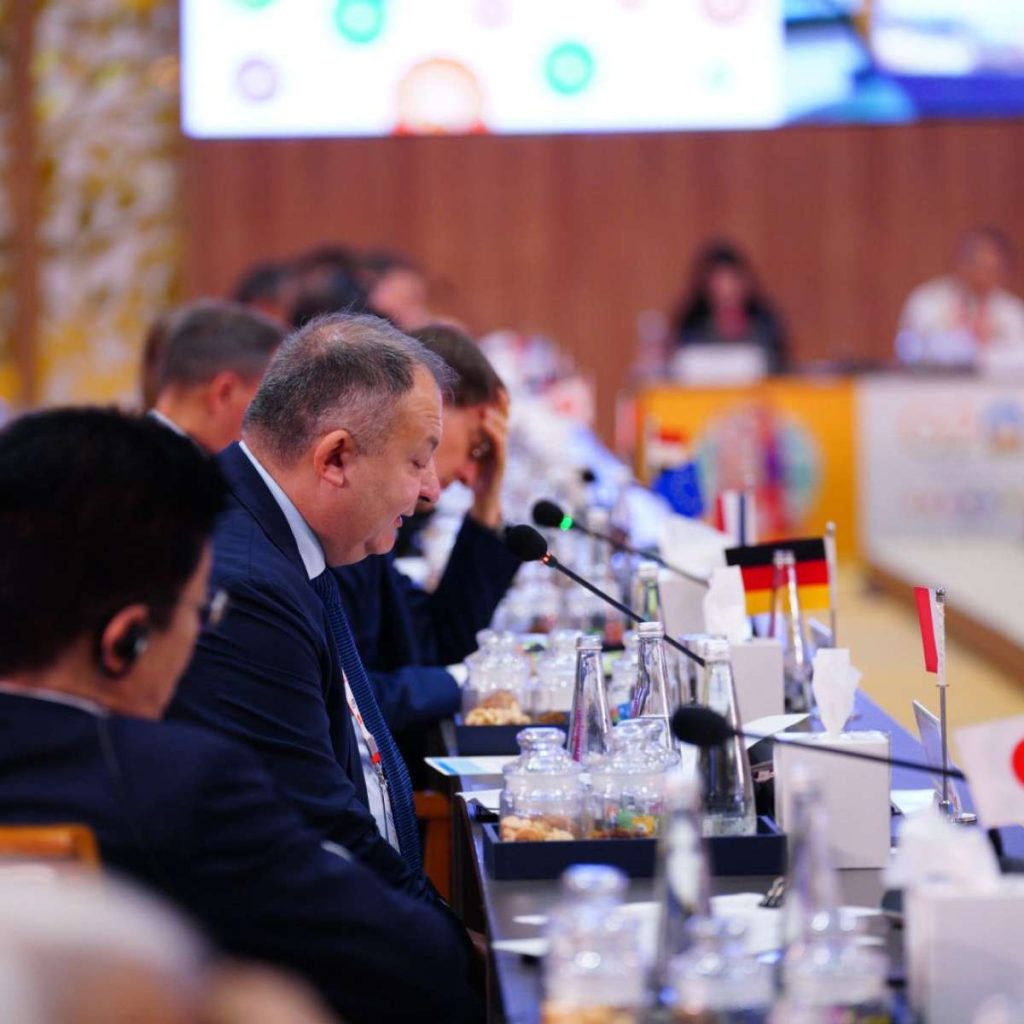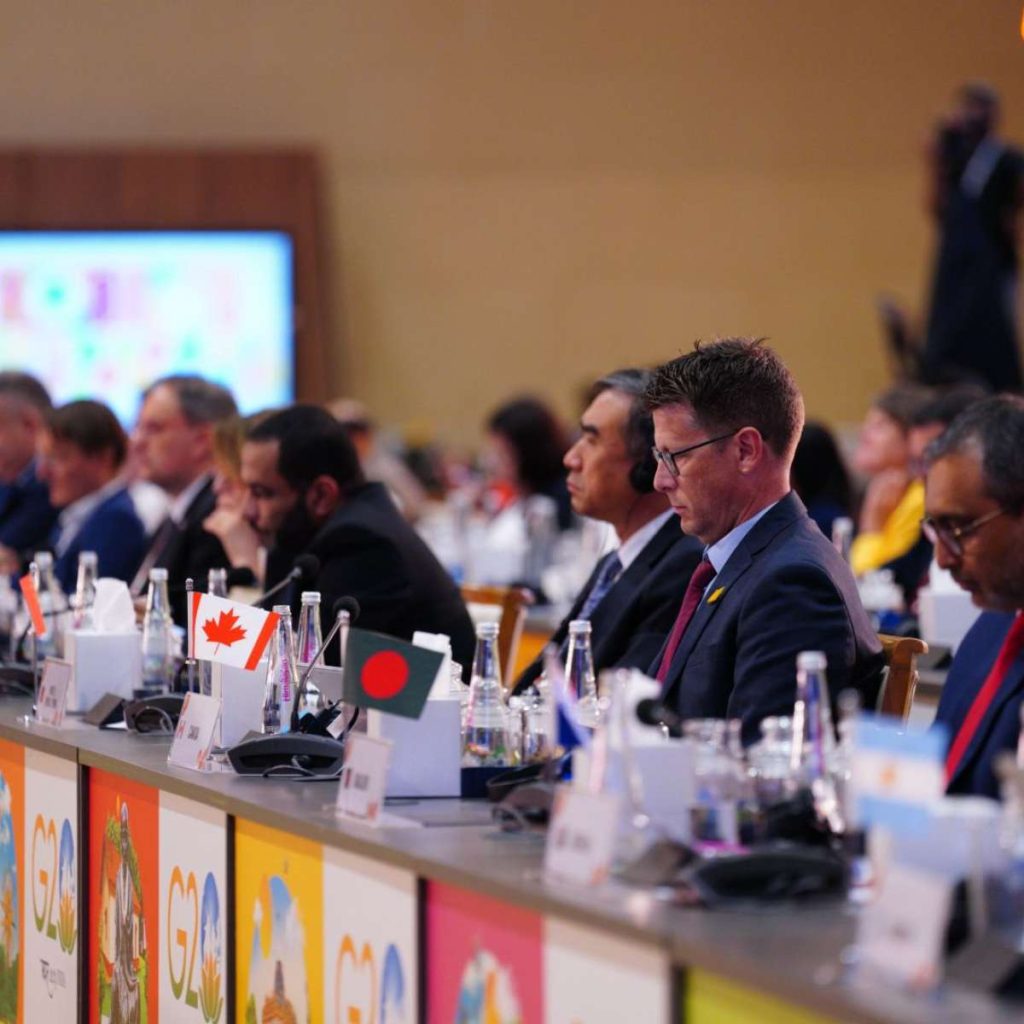
The G20 countries further reaffirmed the importance of strengthening national health systems by putting people at the centre of preparedness and equipping them to respond effectively…reports Asian Lite News
The G20 Health Minister’s Meeting at Gujarat’s Gandhinagar on Saturday witnessed the unanimous adoption of The Outcome Document, agreed to by all G20 delegations.
According to a government release, the Outcome Document reaffirmed the commitment of G20 countries to continue strengthening the Global Health Architecture.
Building on the lessons from the COVID-19 pandemic, G20 countries arrived at a consensus to build more resilient, equitable, sustainable and inclusive health systems equipped to address ongoing global health challenges and future public health emergencies with equitable access to safe, effective, quality-assured and affordable vaccines, therapeutics, diagnostics, and other medical countermeasures, especially in Low and Middle-income Countries (LMICs) and Small Island Developing States (SIDS).
The G20 countries further reaffirmed the importance of strengthening national health systems by putting people at the centre of preparedness and equipping them to respond effectively.
They also recognized the importance of mainstreaming a gender perspective when designing health systems, considering the specific needs of women and girls, with a view to achieving gender equality in health systems. This would facilitate achieving Universal Health Coverage (UHC), with an aim to strengthen primary health care and improve essential health services.

As per the release, the G20 countries recognized the need for improving our understanding of long-COVID, its consequences on individual, social and economic levels as well as on post-COVID-related health services and noted the importance of surveillance and research into long-COVID.
They affirmed that the need of the hour is to converge, consolidate, and create a healthier future and strengthen national health systems including through effective community involvement through the underlying principle of “Leave No One Behind” and considering vulnerable populations living in crises affected settings.
Under the overarching theme of India’s G20 Presidency of ‘One Earth, One Family, One Future’, the G20 nations deliberated on the three Health Priorities – Health Emergencies Prevention, Preparedness, and Response [PPR] (with focus on One Health and Antimicrobial Resistance [AMR]), Strengthening Cooperation in the Pharmaceutical sector with focus on availability & access to safe, effective, quality, and affordable Medical Countermeasures-VTDs (Vaccines, Therapeutics, and Diagnostics), and Digital Health Innovation and Solutions to Aid Universal Health Coverage and Improve Healthcare Service Delivery.
The G20 countries continue to be committed to strengthening the dialogue with the Finance track through the G20 Joint Finance-Health Task Force (JFHTF), and welcomed the conclusion of the First Call for Proposals of the Pandemic Fund, the release added.
They also highlighted the importance of securing new donors and co-investments. India’s efforts in arranging co-branded events which discussed beyond the identified priorities was commended by all nations.
The G20 member countries looked forward to a successful outcome of the ongoing negotiations in the Inter-Governmental Negotiating Body (INB) for a legally binding WHO convention, agreement or other international instrument on pandemic PPR (WHO CA+) by May 2024 and the Working Group on Amendments to the International Health Regulations (WGIHR), recognizing member states’ sovereignty and responsibility for health systems.
Expressing concern over rising cases of zoonotic diseases, the G20 member nations duly focused on integrating collaborative and inclusive One Health Approach as enunciated by the One Health High-Level Expert Panel and addressing the nexus between climate change and health.
The nations committed to prioritizing climate-resilient health systems development, building sustainable and low-carbon/low greenhouse gas (GHG) emission health systems and healthcare supply chains that deliver high-quality healthcare, mobilize resources for resilient, low-carbon sustainable health systems and facilitate collaboration.

They also recognized the potential role of evidence-based Traditional and Complementary Medicine (T&CM) in health, and took note of WHO’s efforts in this direction including global and collaborating centres, and clinical trial registries.
The G20 nations supported a WHO-led inclusive consultative process for the development of an interim medical countermeasures coordination mechanism led by an inclusive decision-making arrangement including effective representation of LMICs and other developing countries and convened by WHO to enhance collaboration for timely and equitable access to medical countermeasures against pandemic threats.
Building on the lessons from the COVID-19 pandemic, member states also recognized the significance of digital health and health data modernization in strengthening healthcare systems and making health services including routine immunization, mental health, nutrition, and sexual and reproductive health services accessible and equitable to all.
Digital health is important for a better healthcare system and can support the creation of standards-based electronic health records, enable near real-time public health surveillance, personalized care, improve quality of care through clinical decision support systems, enable continuum of care, facilitate self-management of health by patients. Appropriate and safe use of health data and proper legal and technical safeguards to the patient’s privacy can support informed public health policy, more strategic health financing models and promote unprecedented research opportunities.
The G20 member countries welcomed the results of work done by WHO, OECD, the International Civil Aviation Organization, the International Maritime Organization, and Global Digital Health Partnership (GDHP) started during the Indonesian Presidency, to improve trusted, cross-border interconnectivity and health systems to facilitate international travel and support global collaboration in health through WHO’s Global Digital Health Certification Network and look forward to exploring its broader application in future.
They also recognize the potential for innovative technologies, including the use of internet of things, big data analytics, Artificial Intelligence and machine learning, to support people’s health needs and achieve the goal of UHC.
They note the importance of applying ethical principles and appropriate governance standards and principles to their development, adoption and use.

The member nations are committed to support the WHO’s efforts to establish the Global Initiative on Digital Health which will support the implementation of WHO member-states’ endorsed WHO’s Global Digital Health Strategy 2020-2025.
The initiative aims to support countries to plan and implement high quality digital health systems and facilitate patients to access healthcare services based on a people-centric approach.
They also underlined that it is essential to uphold international law and the multilateral system that safeguards peace and stability. This includes defending all the Purposes and Principles enshrined in the Charter of the United Nations and adhering to international humanitarian law, including the protection of civilians and infrastructure in armed conflicts.
They emphasized that “the use or threat of use of nuclear weapons is inadmissible. The peaceful resolution of conflicts, efforts to address crises, as well as diplomacy and dialogue, are vital. Today’s era must not be of war.”
The G20 nations are committed to further continuing action-oriented dialogues in global health under the incoming G20 presidencies, including Brazil in 2024. (ANI)
ALSO READ: India stresses on sharing expertise at G20


